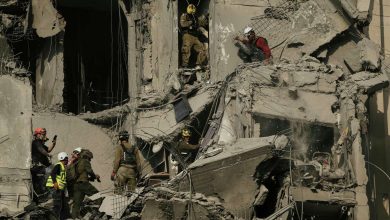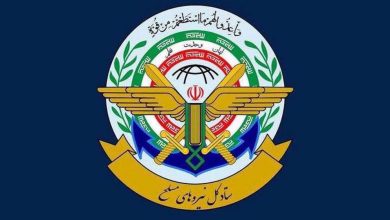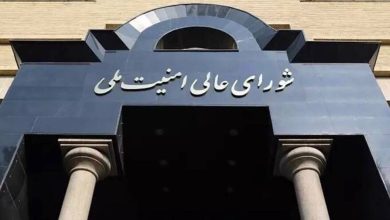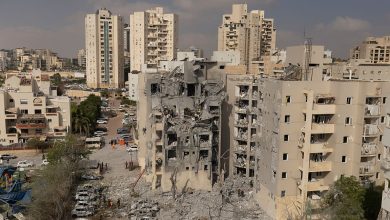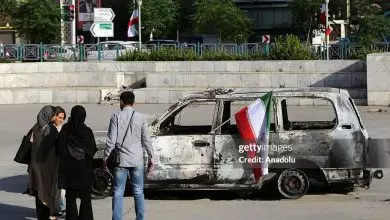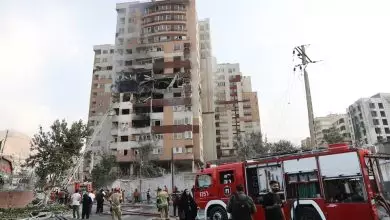Iran Signals Potential Nuclear Pursuit if Subjected to US Military Action, Says Leader Aide
A senior advisor to Ayatollah Seyyed Ali Khamenei, the Leader of the Islamic Revolution, has issued a warning that if the United States and Israel launch an attack on Iran under a nuclear-related pretext, the Islamic Republic may be compelled to pursue nuclear capabilities.
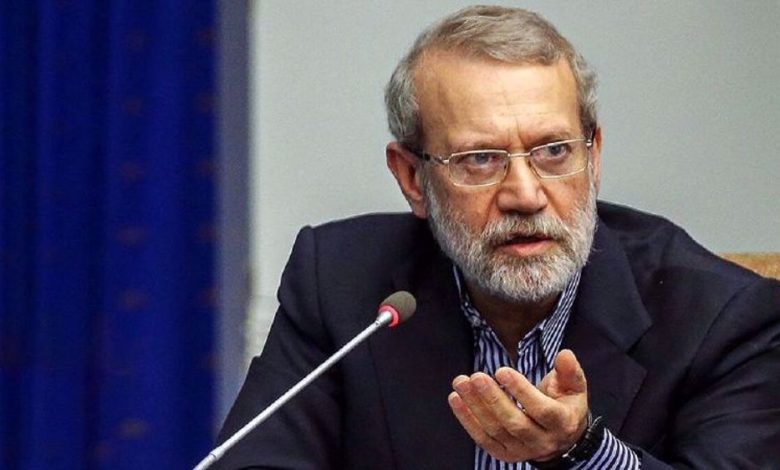
Ali Larijani issued a warning on Monday following repeated threats from Trump, who has over the past several days cautioned Iran about potential bombardment if Tehran does not consent to a new nuclear agreement with Washington.
In an interview, he remarked that Iran has achieved a notable standing among global powers, with numerous Western nations expressing a desire to forge independent ties with Iran. Nevertheless, he noted that these countries have refrained from taking a definitive position due to pressure from the United States.
In May 2018, the United States initiated the unilateral imposition of sanctions on Iran following Trump’s withdrawal from the 2015 nuclear agreement, officially termed the Joint Comprehensive Plan of Action (JCPOA), which had been established between Iran and several world powers.
The Trump administration at the time initiated a “maximum pressure” campaign against Iran, aiming to enforce what were described as the “toughest ever” sanctions. This campaign reimposed sanctions that had been lifted under the prior agreement and introduced additional unilateral and allegedly illegal restrictions on Tehran.
In a response to the recent measures, Iran has taken legitimate actions regarding its nuclear program, including the activation of advanced centrifuges, among other initiatives.
Ali Larijani emphasized that any military action by the United States or Israel against Iran, under the guise of addressing Iran’s nuclear program, would compel the Islamic Republic to consider moving toward the production of nuclear weapons. He noted that such a scenario would lead to domestic pressure from the Iranian populace to develop nuclear armaments.
In early March, Trump disclosed that he had dispatched a letter to Iran, coinciding with the reinstatement of his maximum pressure strategy through the imposition of new sanctions on the nation. The correspondence reached Tehran on March 12, delivered by UAE presidential adviser Anwar Gargash.
On March 27, Iranian Foreign Minister Abbas Araghchi announced that Tehran had conveyed its official response to Trump’s letter via Oman.
Iran has repeatedly emphasized its refusal to engage in negotiations with the United States, citing the ongoing pressure campaign initiated by Trump against Tehran.
Former Iranian parliament speaker Ali Larijani warned that any military action against Iran would bring repercussions. He noted that the content of Trump’s letter echoed the rhetoric he frequently employs. Larijani held the position of parliament speaker from 2008 to 2020.
Iran has categorically dismissed the possibility of engaging in direct negotiations with the United States amidst ongoing pressure but has expressed its willingness to participate in indirect discussions.
Larijani emphasized the complexity of indirect negotiations, highlighting the importance of comprehending each party’s demands and concessions. He remarked that while Trump disrupted the nuclear agreement, Iran’s nuclear program cannot simply be eliminated through military action.
In a recent interview with NBC News, Trump issued a warning, stating that failure to reach a deal would result in bombing.
On Monday, Ayatollah Khamenei cautioned that any aggressive action by the United States against the Islamic Republic would be met with a significant retaliatory response.
In other comments, Larijani observed that many politicians view Trump’s declarations as mere rhetoric. He further stated that Ayatollah Khamenei perceived the JCPOA as an unfavorable agreement, highlighting that a U.S. leader could easily abandon their nation’s commitments, while they maintained theirs.
Ali Larijani emphasized that while the Leader’s fatwa bans nuclear weapons, any misstep by the United States could create public pressure that might drive Iran towards pursuing nuclear capabilities.
Western discourse often focuses on strategies to destabilize Iran internally. However, the Islamic Republic maintains significant public backing despite economic challenges. The Leader’s advisor highlighted the enduring connection between the citizens and the Revolution, likening it to a parental bond.
In a statement last month, Ayatollah Khamenei rejected Trump’s overtures for dialogue, accusing him of trying to mislead international public opinion. Khamenei argued that the U.S. was attempting to present itself as open to negotiations, while casting Iran as resistant to engaging in talks.
Iran holds the distinction of being the most thoroughly verified Member State by the International Atomic Energy Agency (IAEA), the United Nations’ nuclear oversight body. The country’s nuclear program has been subjected to some of the agency’s most extensive and regular verification procedures for many years.
Ayatollah Khamenei has issued a fatwa prohibiting the pursuit, acquisition, and storage of non-conventional weapons, reinforcing the Islamic Republic’s commitment to the Treaty on the Non-Proliferation of Nuclear Weapons (NPT) as one of its earliest signatories.

